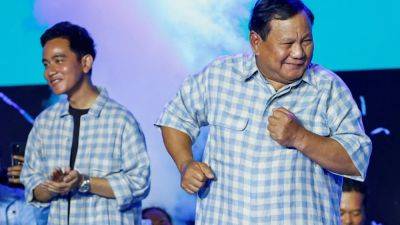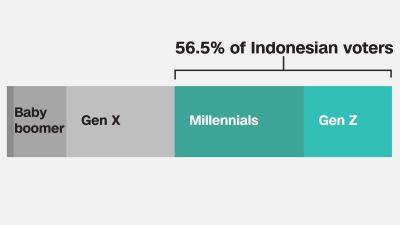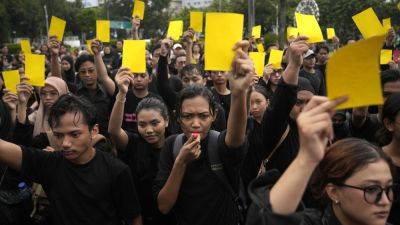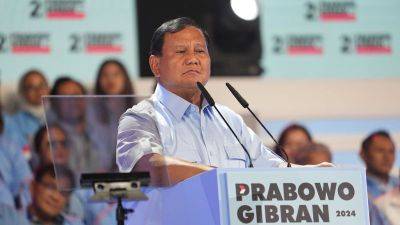Indonesian presidential hopefuls are trying social media, K-pop to win young voters. Will it work?
JAKARTA, Indonesia (AP) — Seventeen-year-old Naima Khairiya Ismah started being bombarded by social media posts from candidates for Indonesia’s presidential election on before she’d even given voting any thought.
As three candidates vie to replace popular but term-limited President Joko Widodo in an election later this month, they’ve been aggressively seeking millennials and Gen Z voters. People between the minimum voting age of 17 and the age of 43 make up about 55% of the country’s 205 million eligible voters.
Candidates are reaching out through the apps young voters use, the K-pop music many love, and even video gaming events.
“As young people, we can’t meet the candidates in person,” said first-time voter Ismah, chatting after class outside her Jakarta high school. “The easiest way to know them is through social media platforms, which is very effective.”
The candidates — Defense Minister Prabowo Subianto, 72; governing party candidate Ganjar Pranowo, 55; and former Jakarta governor Anies Baswedan, 54 — are all from Indonesia’s conservative, male-dominated political scene. But their campaigns have been stressing issues that matter to young people: job opportunities, climate change and institutional corruption.
Polls show Subianto, a former general, well ahead of his two rivals, though perhaps not with the majority needed to avoid a run-off. Despite being the oldest candidate, his running mate is the youngest: 36-year-old Surakarta mayor Gibran Rakabuming Raka, who also happens to be the sitting president’s son.
Their lead comes primarily from younger voters.
A December survey by the Indikator Politik Indonesia agency showed all three candidates virtually tied in support among voters aged 56 or older, but Subianto







